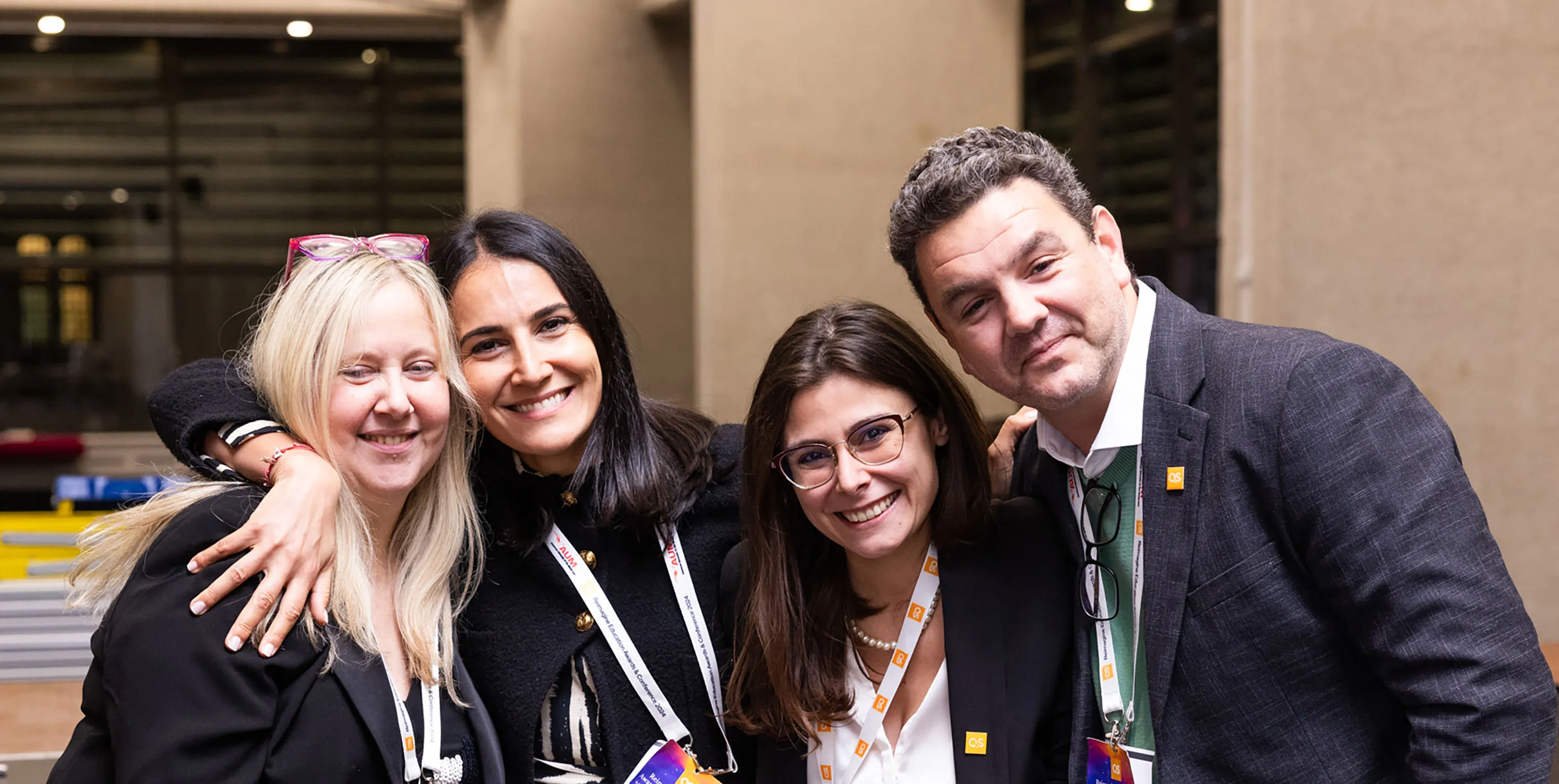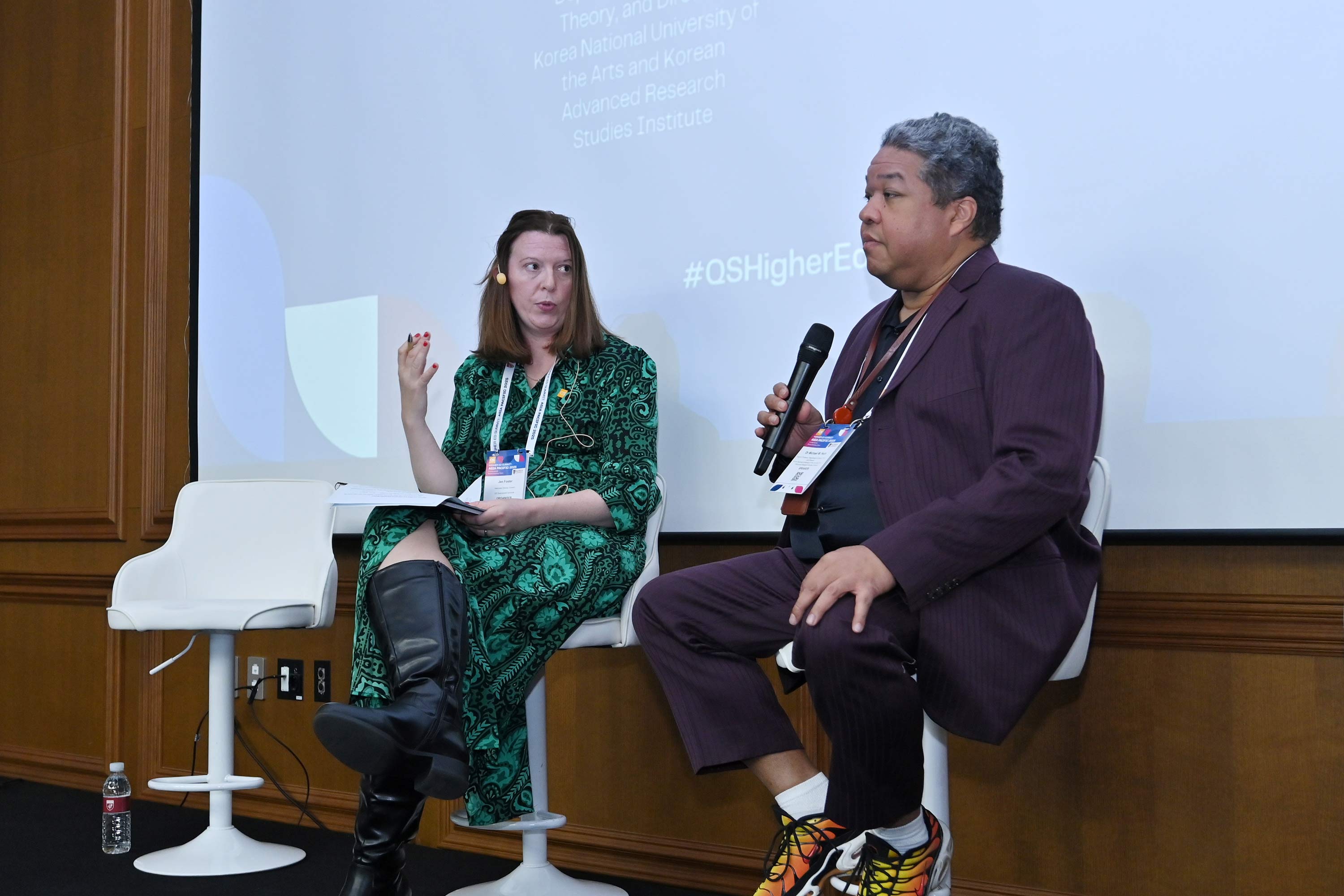At the QS Higher Education Summit: Asia Pacific 2025, in Seoul, a Fireside Chat focused on a central challenge facing the region: How can higher education systems evolve to support sustainable growth, productivity, and shared prosperity in an era of rapid change?
Speakers:
- Dr. Maria Spies, QS Chief Innovation Officer at QS
- Eduardo Pedrosa, Executive Director of the Asia-Pacific Economic Cooperation (APEC) Secretariat
Universities as drivers of human capital in the fourth industrial revolution
Eduardo Pedrosa, who has long worked at the intersection of economic cooperation, regional policy, and workforce development, grounded the conversation with one simple idea: economic growth is ultimately about people - their skills, their adaptability, and the sense of shared purpose that binds societies together. While trade agreements, investment frameworks, and institutional reforms matter, they only succeed when people can learn, collaborate, and innovate across borders.
The conversation traced how the role of education has evolved across industrial transformations. In the first industrial era, basic literacy formed the foundation of productivity. In the second, secondary education and systematic technical training became essential. In the third, mass access to tertiary education fuelled interconnected global knowledge economies.
Now, in the fourth industrial revolution, defined by AI, automation, and advanced digital systems, the challenge is no longer getting people to enrol at universities, but ensuring universities equip them with the right skills.
Pedrosa stressed that higher education remains vital for developing the critical thinking, ethical grounding, and conceptual problem-solving skills upon which innovation depends. However, universities must also recognise that learning cannot stop at graduation. The traditional model of a single degree between ages 18 and 25 is increasingly mismatched to a world in which:
- People live longer and work across multiple careers.
- Technology evolves faster than formal curriculum cycles.
- The demand for reskilling and upskilling accelerates annually.
During the session, when the audience was asked whether their institutions were doing enough to support lifelong learning, many educators indicated that they could (and should) be doing more. Pedrosa agreed: lifelong learning must move from being a slogan to a structural commitment.
The productivity challenge: AI, ageing populations, and the need for reskilling
A recurring theme was productivity, a challenge intensified by demographic ageing across the Asia Pacific. As some economies approach a point where there are fewer workers than jobs, productivity gains become essential.
Artificial intelligence, Dr. Spies noted, is a double-edged sword: it can disrupt employment, but it can also empower workers to do more with less. Universities therefore have a critical responsibility to prepare graduates, and mid-career learners, to work alongside AI, not be displaced by it.
This includes:
- Strengthening analytical and creative skillsets.
- Integrating technology fluency across disciplines.
- Developing open learning pathways for mid-career professionals.
- Encouraging adaptability and problem-solving confidence.
Cross-border collaboration builds trust and innovation capacity
The conversation also spotlighted the role of regional cooperation. APAC economies are deeply interdependent. Student mobility, faculty exchanges, and joint research projects help cultivate knowledge, and crucially, trust, which is the cornerstone of trade and innovation.
Yet, Pedrosa acknowledged barriers remain. Universities often operate in silos, between disciplines, between institutions, and between academia and industry. Incentives to collaborate are not always aligned. Mutual recognition of online-delivered credentials remains inconsistent across jurisdictions.
Still, where collaboration is strong, the impact is powerful. Examples discussed included university consortiums pooling shared infrastructure, such as high-performance computing centres, and research networks tackling cross-border sustainability and health challenges.
Entrepreneurial universities: Creativity, failure, and real-world problem solving
One audience member noted that universities are often risk-averse, making it difficult to foster entrepreneurial thinking. Dr Spies agreed but emphasised that universities already possess the raw material for innovation: Research capacity.
The challenge is to translate research into entrepreneurial capability. Promising approaches include:
- Embedding experiential problem-solving into curriculum.
- Partnering with community enterprises to identify real-world challenges.
- Bringing industry practitioners and founders into teaching roles.
- Supporting research commercialisation through incubators and venture collaboration.
Above all, Pedrosa stressed the importance of allowing students to experiment, and sometimes fail. Entrepreneurship requires tolerance for uncertainty, a trait that traditional academic models do not always reward.

Looking ahead: Designing the university of the future
When asked what the university of the future might look like, Pedrosa noted that while delivery modes may shift, online, hybrid, immersive, the core mission will not: to develop knowledgeable, ethical, adaptive citizens.
Universities that succeed in the coming decade will be those that:
- Treat learning as a lifelong ecosystem.
- Build strong regional and global partnerships.
- Align research with societal and economic needs.
- Foster creativity and responsible innovation.
The Asia Pacific is entering a defining era of change. The region’s universities have a powerful role to play, not only as educators, but as connectors, conveners, and catalysts of human potential.
Their leadership will help shape the region’s prosperity for decades to come.









.jpeg)







.jpg)
